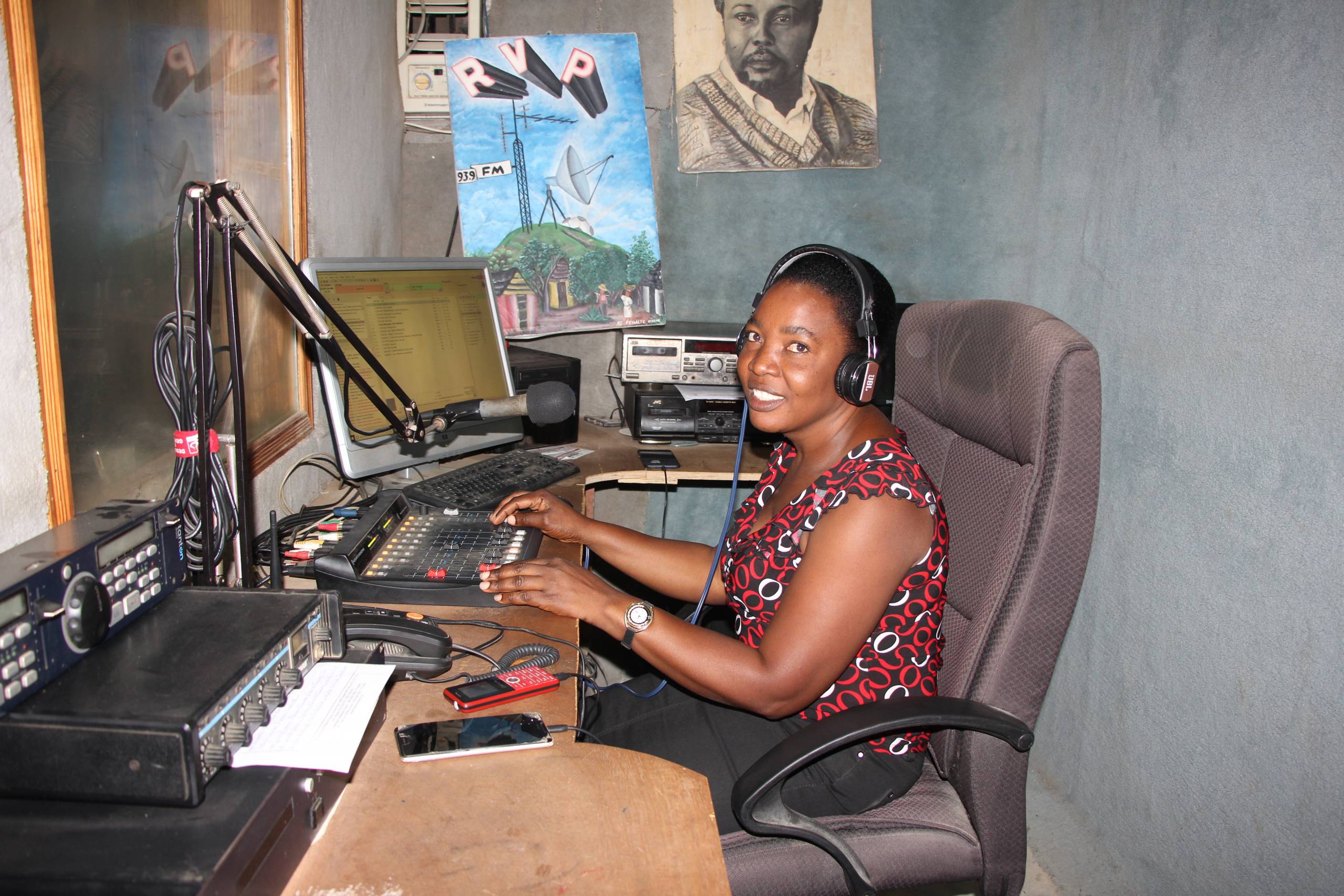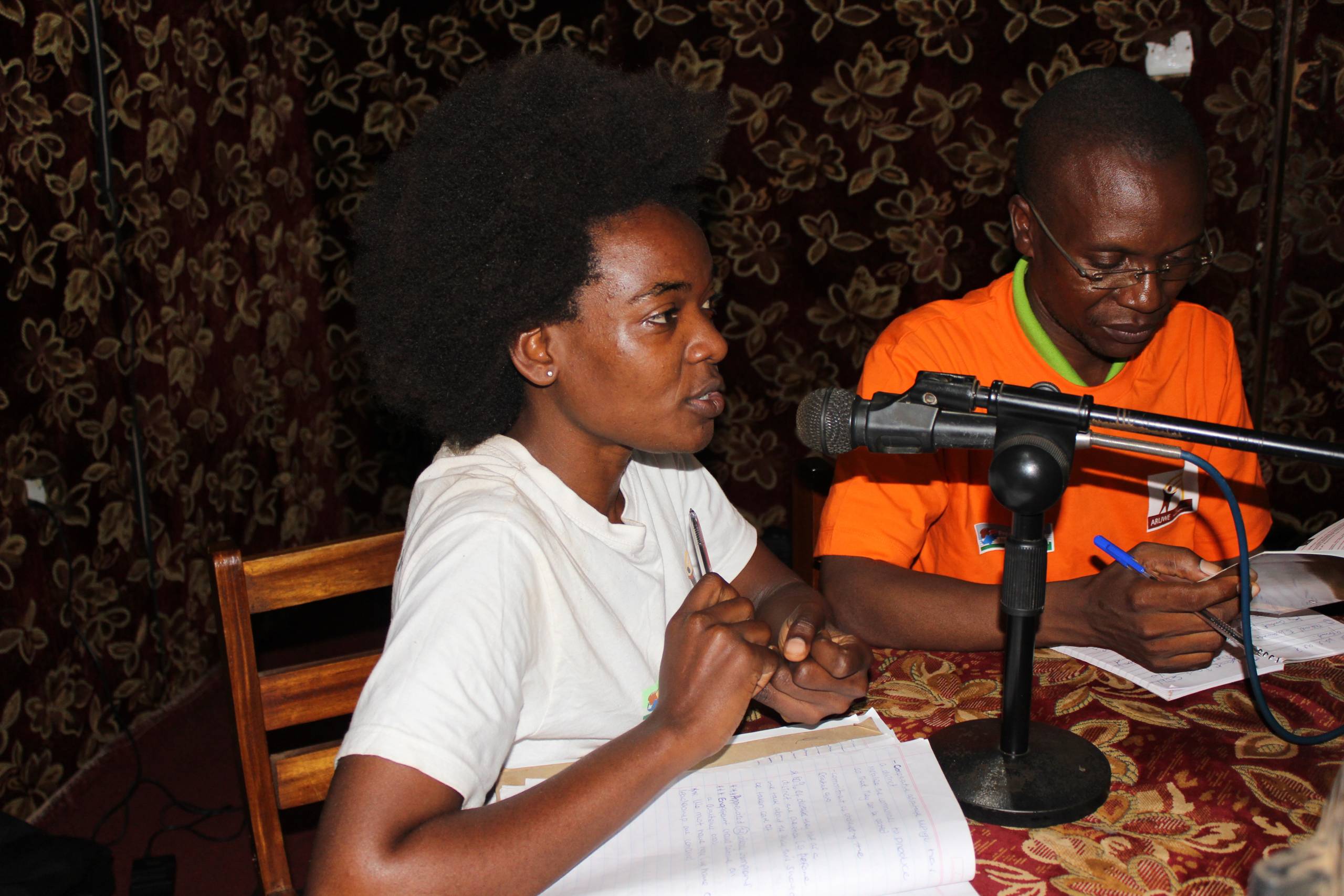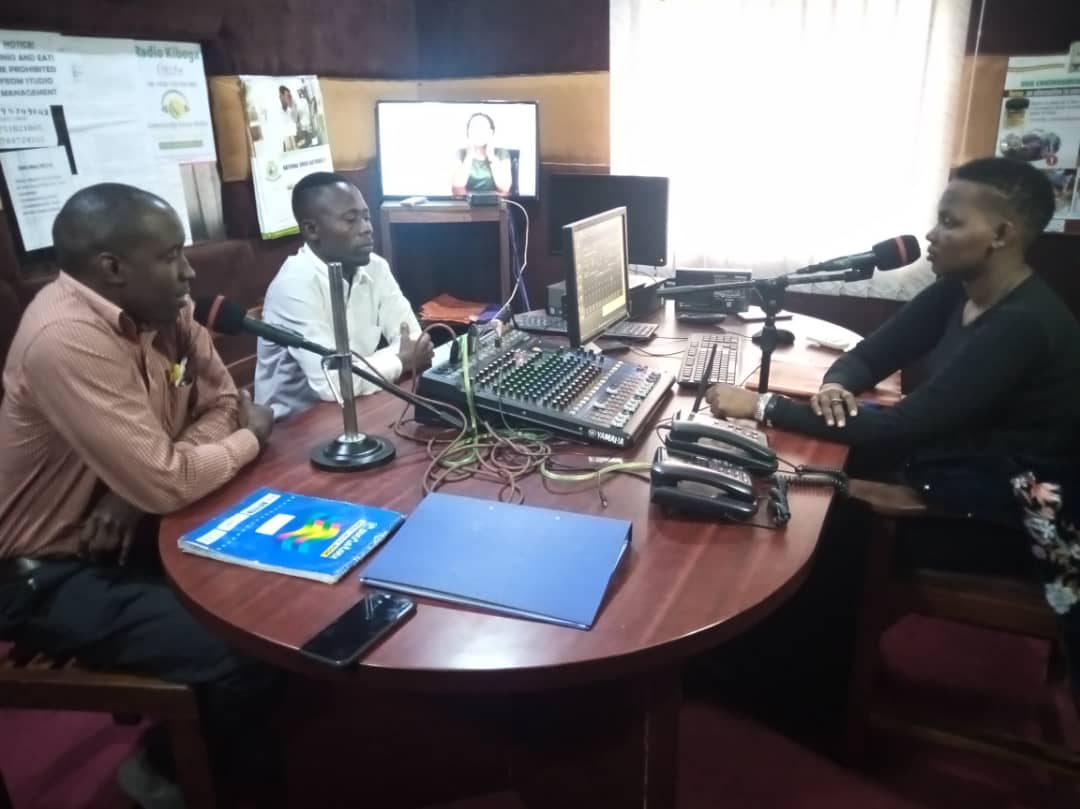Radio is an important tool for development and advocacy
Contributions by Agnes Mirembe (ARUWE), Juslene Tyresias (MPP) and Jaff Bamenjo (RELUFA)
February 13 marks World Radio Day – a day to celebrate accessible information, learning, and connection. Radio has always played an important role in the development and advocacy work of the Presbyterian Hunger Program’s global partners.
Raising grassroots voices in Uganda
Community radio has played a significant role involving and raising grassroots’ voices, opinions, and issues. It is an information tool for the voiceless to express their concerns. It does not discriminate among listeners, participants, or contributors. It gives everyone equal opportunity to contribute to the subject matter at hand. It facilitates the realization of the right to information. It promotes the right to communication enhancing shared feedback. It is a tool for accountability.
Action for Rural Women’s Empowerment (ARUWE) is an organization with a mission to empower women to initiate and manage their socio-economic development processes through strengthening community participation, advocacy, and service delivery. ARUWE uses radio to share feedback on its mandate. Feedback from radio talk shows has greatly helped in shaping programs and operations.
Community radios help to ensure people’s right to information and community participation by expressing the voice and opinions of grassroots people in the development process.
Especially during the COVID-19 crisis, ARUWE has used community radios as the means of reaching out to project participants in the community since radio reaches a big range of the population and can be customized in the language of the target community.
Radio brings together duty bearers, leaders, community members and other civil society organizations. It is an ideal platform for raising and addressing issues of the community members as well as holding the duty bearers accountable. It has been a platform that provides an equal space for both women and men to express their views and opinions equally.
Community radio programing continues to serve as a great tool in mobilizing communities, creating awareness, advocacy and providing a platform for civic engagement. Through the radio, we can reach and mobilize more numbers of people to participate in different activities. For example, 69% of the gender-based violence survivors that we have worked with, have come to us after being informed through Radio.
We have always registered overwhelming turn outs of rural women during our land rights legal clinics. With radio, you are sure not to leave anyone behind in the development process. Hence, it is also a great tool that markets ARUWE’s interventions in communities, which enables more people to learn about ARUWE’s work.
Organizing peasants in Haiti
The Movement of Peasants of Papaye (MPP) is the largest peasant organization in Haiti. MPP works with rural peasants to empower them through popular education programs and technical skills training to take control of their own future so that they may live in dignity.
Community radio serves as an important tool in the process by:
- Promoting the organized structures of the impoverished peasantry and their struggles to build a society where the vital needs of people are satisfied (food, housing, education, work, medical care, leisure, etc.) while respecting cultural identity, freedom of expression, and freedom of conscience, etc.
- Educating impoverished peasants on issues of exploitation and domination so that they can mobilize and organize for the transformation of social and economic conditions.
- Raising awareness on the fight for agrarian reform and creating spaces for peasants to participate at all levels of the process.
- Motivating the peasantry to take concrete actions towards freeing Haiti from dependence on foreign inputs and imports.
- Organizing women for their own development and gender equality.
- Promoting the establishment of savings and loans groups to generate community wealth.
- Organizing young peasants to demand that they benefit from development programs.
- Promoting Haitian culture and products.
Resourcing communities to defend their rights in Cameroon
In our context in Cameroon, the radio provides an opportunity for local and indigenous people, especially those who cannot read or write, to access local news in local dialects for better comprehension.
In the Far North Region of Cameroon, small scale farmers are exploited by the speculation system, where rich merchants make large scale purchases of produce at harvest time when prices are low and generate a food scarcity situation, driving up the price of produce. Consequently, during the lean period soaring food market prices become a hindrance for local community members to purchase food locally and thus they become dependent on food distribution programs. In situations like these and others, and with little attention paid by public radios to these issues, RELUFA (Joining Hands Cameroon) has been able to work with communities through community radios, to ensure their access to information in the language that they understand best so that they can defend their rights.
RELUFA recently conducted an evaluation in the Ocean region in South Cameroon where RELUFA has been working with indigenous people for many years. It was clear that radio programs had contributed to general awareness on land and food issues and empowered people to speak up. Isolated and vulnerable communities were empowered to share their local experiences through radio.
A two-way flow of information between local communities and power structures allows communities to provide valuable feedback and input into decisions that affect them.
The work of the Presbyterian Hunger Program is possible thanks to your gifts to One Great Hour of Sharing.


